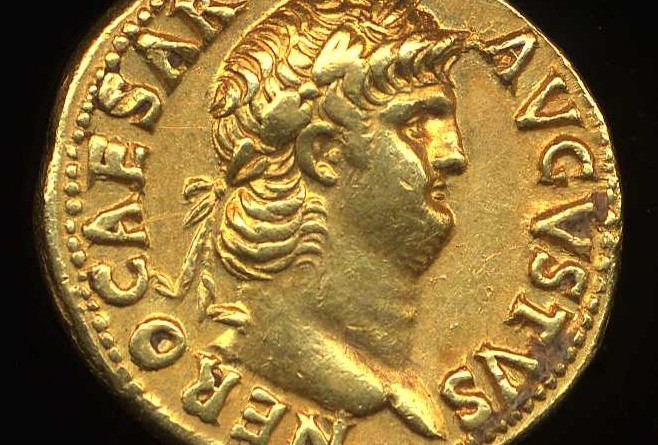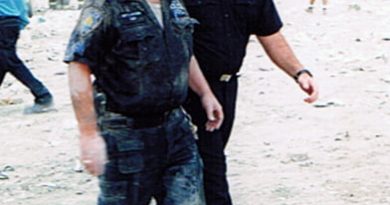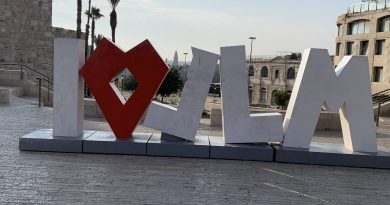Rosh Hashanah 5776 – Coincidence? Or not…
“Coincidences are God’s way of remaining anonymous.”
One of the great tensions in Judaism is between our unshakeable belief in free will, and the belief in divine providence, the idea that everything that happens, happens for a reason.
We are less than a week away from Rosh Hashanah, the Jewish New Year. Rosh Hashanah commemorates the creation of the world, but interestingly it is not on the first day of creation (according to the traditional reckoning), rather on the fifth day of creation – the day mankind was created. Rebbe Nachman teaches that this is because Man has free will, and until Man was created – the first creature with a will that could oppose God – everything was simply God. There was no “other.”
We also have teachings that say when the Torah proclaims that man was created in the image of God, it means we have free will. God is incorporeal, so clearly it does not mean we are in the image of God in a physical sense; rather it is our free will that makes us God-like. According to this view, animals are strictly programmed by instinct and training, they have no free will. Angels are so close to God they have no free will either. Man is unique, baal habechira, the “master of choice.”
As we approach the Day of Judgment, of course, free will is also indispensable to the whole concept of “judgment.” How can someone be held accountable for his actions if his actions are not his choice, rather they are directed by God?
Directly opposed to this, we also have teachings that say everything happens for a purpose. Everything is guided. “There is no blade of grass that grows without an angel whispering to it, ‘grow, grow,’” is a principle of Jewish mysticism. Nebuchadnezzar, the Babylonian king who destroyed the Temple in Jerusalem in 587 BCE is called “the rod of God” in the Talmud, where it is claimed he was sent to destroy Jerusalem for its sins. There is a story in the Talmud told of Rabbi Akiva avoiding capture by bandits thanks to a combination of coincidences – wind that blew out a lantern, a cat that ate his rooster, a lion that ate his donkey. R. Akiva attributed all of this to God as proof that “kol d’avid rachmanah l’tav,” “all that the Compassionate One does is for the good.” This school of thought is known as hashgacha pratit, literally “supervision of the details,” God’s hand is in everything.
Kabbalah, Jewish mysticism, teaches there are no coincidences. Everything happens because is it part of God’s plan. Everything we do has cosmic significance.
How do we reconcile free will and divine providence? Does everything that happens in this world reflect God’s will? Was there a purpose for Hitler, or was he just an evil person misusing his God-given free will?
There are times when I feel scientific. When I agree with what Isaac Asimov said about coincidences: things that have a one in a million chance will happen one in a million times. If you think of how many thousands of discrete events happen to a person every day, those “one in a million” coincidences actually only happen once in a million times. We just don’t notice the other 999,999.
But then there are times when I do feel, on a gut level, that certain things I do are in line with what God wants me to do. That somehow I’m a vehicle for God’s will, because God makes certain things easy or hard for me to do. Or I have a chance meeting or chance circumstance that changes my life. It feels too significant and important to chalk up to “mere coincidence.”
There is a story in the Talmud (Gittin 56a) that finds a middle way between free will and divine providence:
He [the Emperor] sent against them Nero the Caesar. As he was coming he shot an arrow towards the east, and it fell in Jerusalem. He then shot one towards the west, and it again fell in Jerusalem. He shot towards all four points of the compass, and each time it fell in Jerusalem. He said to a certain boy: Repeat to me [the last] verse of Scripture you have learnt. He said: And I will lay my vengeance upon Edom by the hand of my people Israel. He said: The Holy One, blessed be He, desires to lay waste his House and to lay the blame on me. So he ran away and became a proselyte, and R. Meir was descended from him.
The implication is that God’s will eventually gets done – in the above story, the Temple was eventually destroyed – but individuals still have free will. You do not have to be an instrument of evil, even if evil is decreed.
“Coincidences” may be God’s way of staying anonymous, but we still have the freedom to choose how we respond to those coincidences — the challenges and opportunities that God puts in our path.
May we all choose wisely.
Shanah Tovah



